 |
 |
 |
 |
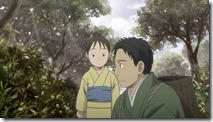 |
 |
How can I possibly start my final Mushishi post ever with anything except “Thank you”?
OP Sequence:
 |
 |
 |
I just need a minute, I’ll be fine. Honest.
I put off watching “Suzu no Shizuku” for quite some time. Part of it was going through a very busy patch and not wanting to take in this final masterwork (as I knew it would be) with anything less than my full, undivided attention. But of course another part was simply not wanting to say goodbye – as long as there was one more Mushishi to watch, I didn’t have to confront the reality that it was really over.
Mushishi is a timeless series in every sense of the word, for me personally as well as in and of itself. It connects me to another time in my life, another place on my journey as an anime fan. It ages better than any fine wine or whisky, only growing more profound and heartbreaking as one tastes more of the bittersweet nectar of life. I’ve always contended that watching Mushishi is effectively a form of meditation, and the experience of meditation changes as we grow older. The more we have the more we lose, and the more we lose the more we appreciate the sweet, terrible sadness that life is. The sound of bells in the woods may just as beautiful as when we heard them as a boy, but a man who hears them no longer does so with the same ears. He knows their significance, and that changes everything.
With a great series like Mushishi, there’s always the question of how to give it an ending that does it justice. Urushibara Yuki’s manga is a heartbreaking work of staggering genius, utterly unique in the realms of the medium, and there was never any question in my mind that she would give Mushishi the benediction that would suit it perfectly. Nagahama Hiroshi’s adaptation is every bit as miraculous, and while he’s occasionally altered the chapter order to suit his own medium (always for the better), he knows this story far too well than to close with anything but “Suzu no Shizuku”. I’ve often seen it said that Mushishi has no continuity, but nothing could be farther from the truth. When one watches or reads the series with alert senses and an open mind, the true pattern of the narrative becomes inescapable.
In “Suzu no Shizuku” we see a story that’s very much in alignment with the tone of most of “Zoku Shou”. There’s a keen awareness of the impermanence of human existence, the incompatibility between the needs and wants of the flesh and the impassive will of existence itself. Mushishi is a singular fusion of Buddhist, Shinto, Judeo-Christian and much older and more elemental beliefs. It attempts to frame the human condition in the context of the larger universe and the natural world, more elegantly and adroitly than any manga or anime I know. The result is peculiarly Japanese in the same way that modern Japanese spiritual beliefs are, a keen sense of mono no aware seemingly at the heart of everything. These last few stories (including “Belldrops”) may seem more overtly Buddhist than most in their concern over letting go of the material and embracing eternity, but they remain uniquely Mushishi.
This final chapter is quite a simple one, essentially offering only two characters of real importance – a boy named Yoshirou (Ogawa Gen) and his sister Kaya (Saitou Tomomi). Yoshirou hears the beautiful sound of bells in the mountains; ten months later, Kaya is born. But this is a strange child, with reeds growing out of her scalp and a tendency to wander off both physically and mentally. It’s quite clear early on that this is a theme we’ve seen before on Mushishi – Kaya is surely a Lord of the Mountain, a crucial figure who keeps the mountain healthy and in-balance. But rarely is the Lord of the Mountain a human, and those occurrences when it is are always turbulent and usually tragic.
This is very much a typical Mushishi story, even relying on a familiar premise. It’s only fitting that a series that’s superficially episodic but is in fact constantly evolving should end with a story that appears to be of a kind with the others, yet offers a logical conclusion to the story. We know Ginko will become involved, and indeed he does. He’s troubled that a human should have become the Lord, knowing what it means for those involved, and sympathetic to Yoshirou and the pain he feels. But Ginko also recognizes that the painful act of letting go is ultimately the only way to avoid tragedy, that tying Kaya to her human connections can offer nothing but heartbreak and probable ruin to Yoshirou and his human family.
Any Mushishi chapter always leaves behind a series of moments forever imprinted on your soul, images of ethereal beauty and sometimes horror, softly spoken words of profound truth. It it indeed as Ginko says – when Kaya’s connections to her human family are sparked to life (by the smell of the rice balls her beloved brother makes for her) she loses her ability to hear the voice of the mountain. One must decide – the ties that bind us to our fleeting physical selves, or embracing the infinite that always surrounds us. It’s a choice – we can’t have both.
This is essential incompatibility of the human as Lord of the Mountain, as Ginko tells “The Law” – the circle of light that bestows the power of the Lord and has since time immemorial. Humans have hearts, and their pull is powerful. Faced with the tragedy of Kaya’s life, Ginko tries to save her – in the end, by offering himself up as a sacrifice in her stead. It seems a logical fate for Ginko, who’s forever been lost between the worlds of humans and Mushi as few others have. But Kaya refuses to allow Ginko to usurp her fate. She’s had the chance to experience life as a human, thanks to him, and when he protests that this doesn’t mean she should die, she gives a simple answer – “I won’t. I’ll simply cease to be myself.”
There’s an expression in Japan – “Japanese are born Shinto, married Christian, and die Buddhist”. It’s told with a hint of whimsy, but offers a slyly accurate take on the Japanese spiritual life. Kaya’s choice here could hardly be more Buddhist in its purity and simplicity. Yet later, as he’s leaving an offering of rice balls in the forest and his young brother asks him where Kaya has gone, Yoshirou tells him “Somewhere we can never reach. But she’s not far away. She’s always right by our sides.” That sentiment could hardly be more universal – a coping mechanism that transcends religion or philosophy and speaks to the human condition in its most elemental form.
“Mountains, beings, and nature’s laws are bound by an arrangement. And within it, we live.” This is the simple benediction the narrator leaves us with at the end of things. But the end is not really the end, and the true final words of Mushishi belong to Ginko: “Guess I should get going.” There can be no other words better suited to close the story, and no other way for it to conclude, because Ginko is the eternal traveler. We leave him as we joined him, leaving behind one stop and journeying to another. Ginko exists outside time and place, never really belonging, and his journey is forever ongoing. That’s the feeling I get as the final title card fades away, that we’ve simply been lucky enough to bear witness to a few stops on the journey. And that journey continues, even after we’re no longer there to witness it.
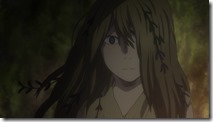 |
 |
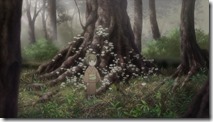 |
 |
 |
 |
 |
 |
 |
 |
 |
 |
 |
 |
 |
 |
 |
 |
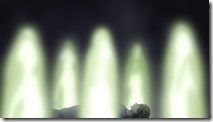 |
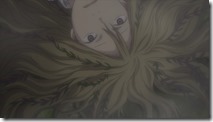 |
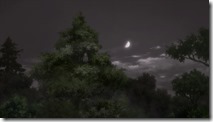 |
 |
 |
 |
 |
 |
 |
 |
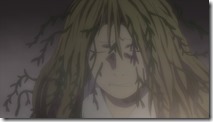 |
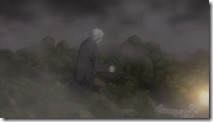 |
 |
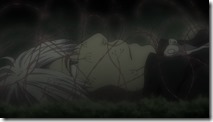 |
 |
 |
 |
 |
 |
 |
 |
 |
 |
 |
 |
 |
 |
 |
 |
 |
ED Sequence:
 |
 |
 |
Epilogue:
 |
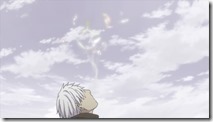 |
 |
End Card:
 |



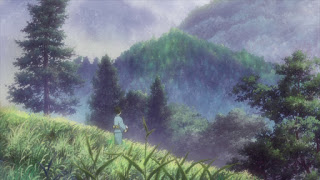

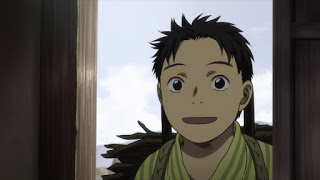

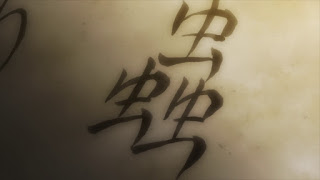
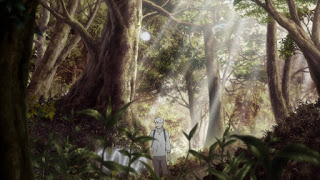
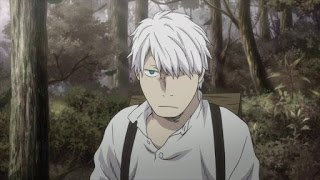
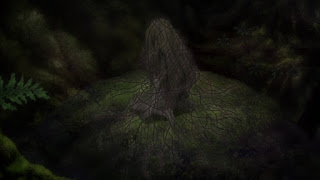
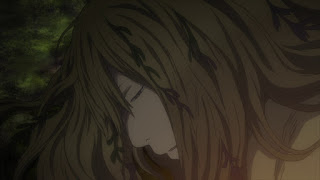
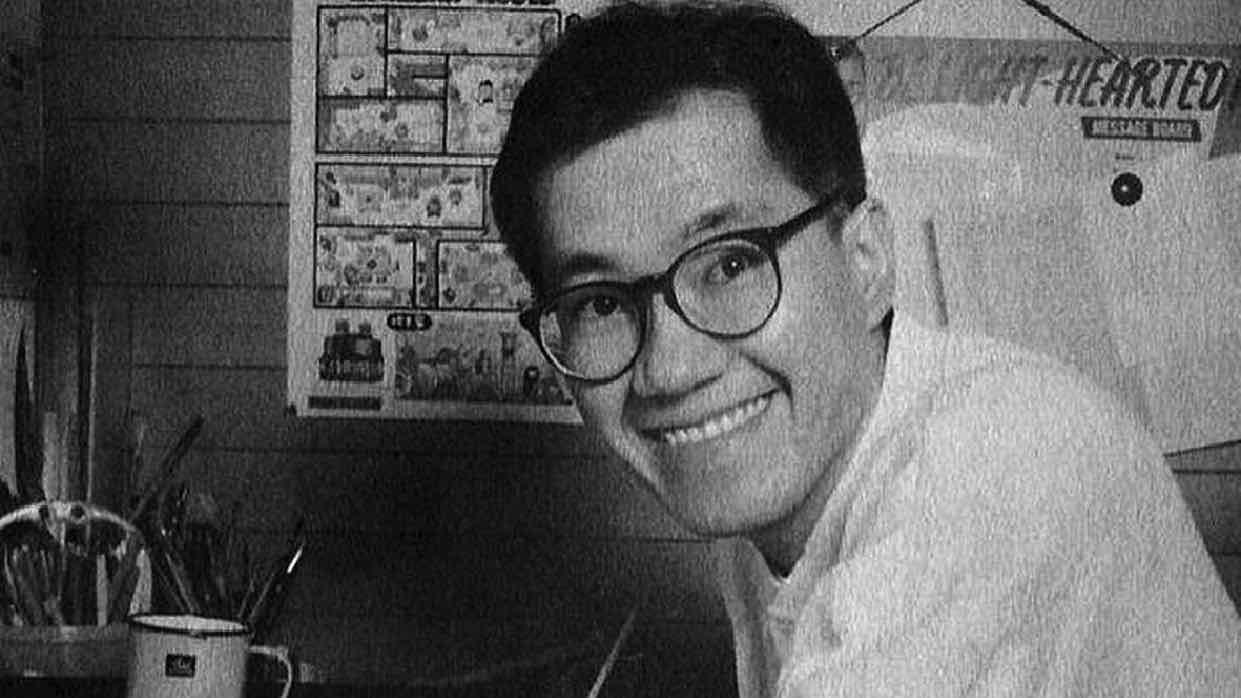
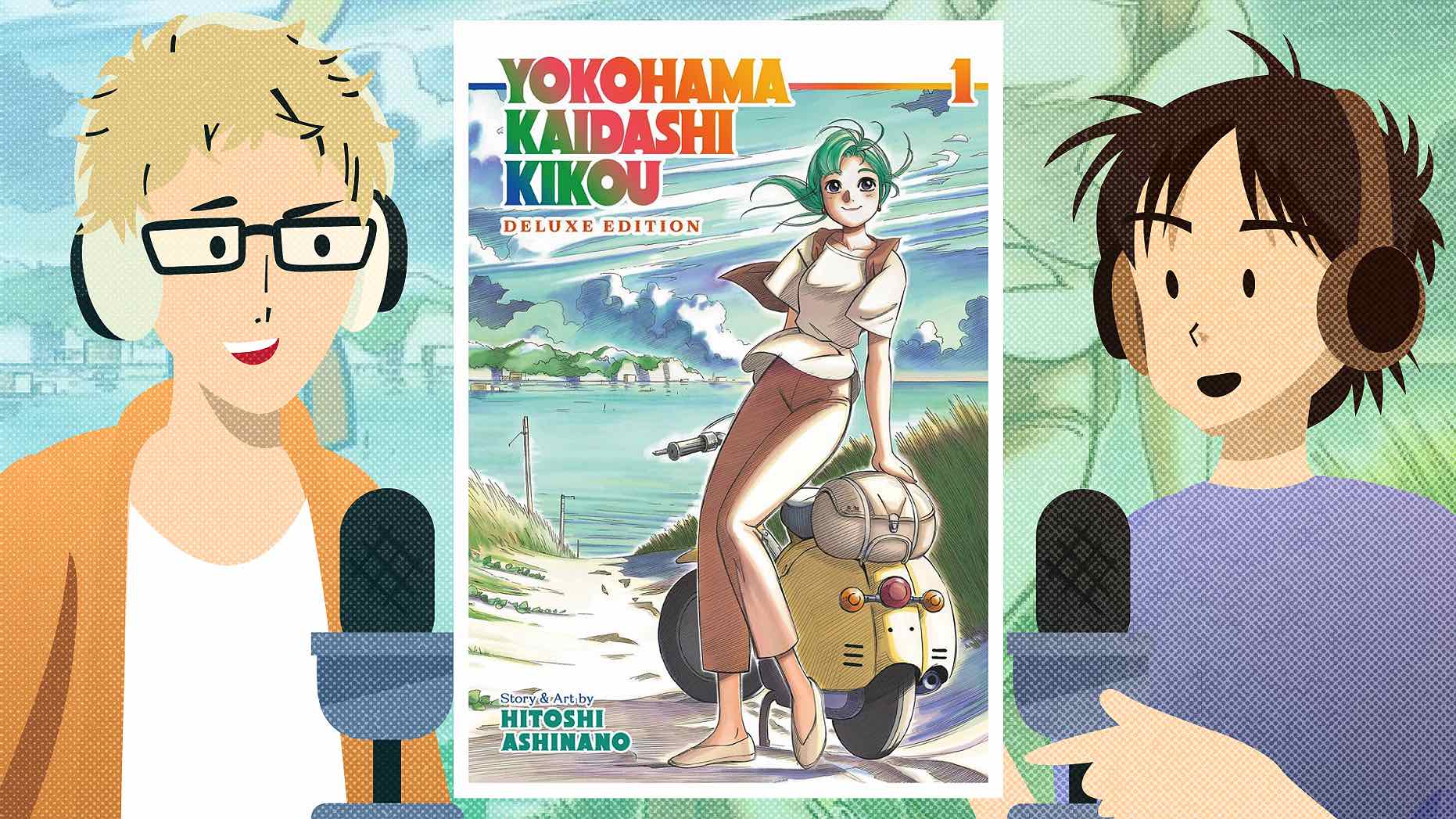
Yann
September 6, 2015 at 4:59 pmI didn't event know this was out… I have to prepare myself psychologically to watch it. Maybe next weekend… I haven't read you review yet obviously. Thanks for the "heads up"… I don't really keep up with anime news besides for your blog, and boy am I happy I have this trusted source of info! 🙂 Thanks again!
Nicholas Earls
September 6, 2015 at 8:11 pmI'm in the same boat. I'm kind of out of touch with the anime industry beyond what I read here. I'm so excited that there's still more Mushishi to watch!! Truly one of the greatest anime/manga series of all time, arguably in my canon of greatest works of fiction I've ever had the pleasure of experiencing.
admin
September 7, 2015 at 12:07 amThat's a lot of pressure you guys are putting on me, LOL.
sonicsenryaku
September 7, 2015 at 2:03 amdont slip up; but anywho ive been putting this off for a while cuz good anime(by good i mean "actually good") is hard to come by these days and putting off mushishi's final ep for all this time has actually given me something to watch so i better get to it
Rita
September 6, 2015 at 6:14 pmI legitimately started to cry towards the end. The story was wonderful as usual, but it was more the gut punch that there's no more Mushishi after this that did it. God I'll miss this series
Jay Psi
September 6, 2015 at 9:43 pmAt last, I've been putting off watching any Mushishi until everything was animated.
I've got a lot to catch up on…
Kohmata Reizno
September 8, 2015 at 4:24 amHope you don't mean it when you say "final Mushishi post ever", would love to see a top ten favorite story list sometime in the future though I imagine that'd be no easy task. Still, you're Mushishi pieces are among my favorite from yours (Hunter x Hunter, Baby Steps & maybe Death Parade are the other ones) so I'd be cool to see more.
Really loved these part, "The more we have the more we lose, and the more we lose the more we appreciate the sweet, terrible sadness that life is. The sound of bells in the woods may just as beautiful as when we heard them as a boy, but a man who hears them no longer does so with the same ears. He knows their significance, and that changes everything."
admin
September 8, 2015 at 5:08 amThanks. The funny thing is, the two halves of that paragraph were never intended to be joined together. I couldn't find anywhere in the post for the last sentence, but I really liked it – eventually I figured out it worked best with the first sentence, and it ended up being my favorite part of the post as well.
Ignacio Moreno
September 8, 2015 at 7:47 pmYou made my curious. I want to see this anime.
Chrysostomus
September 10, 2015 at 8:45 pmBeautiful and cathartic as always. Not much to say other than Mushishi will always be 10/10.
elena
July 7, 2020 at 6:59 amHello, where did you find this film? Please let me know!
Guardian Enzo
July 7, 2020 at 7:53 amIt was on Crunchyroll at one time, no idea if it still is. If not there’s likely a torrent of info online if you search a bit…